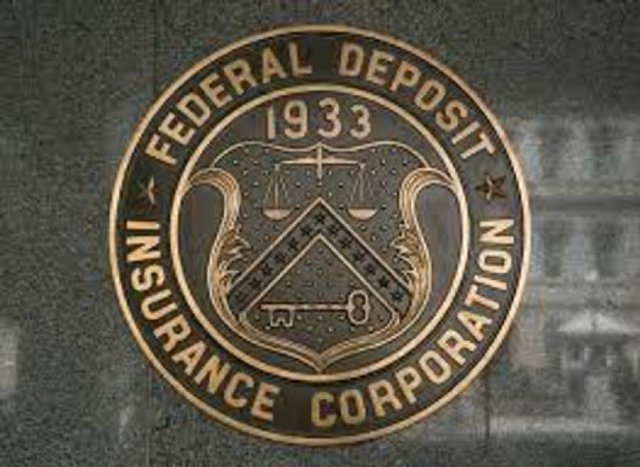
Governments everywhere have been cracking down on cryptocurrency companies and they aren’t showing any signs of stopping. Earlier this week, the FDIC issues cease and desist orders to a handful of cryptocurrency companies.
They state that these companies were misrepresenting themselves to potential customers and investors. Read on to learn more about which companies were issued these orders and why.

FTX US Cease and Desist Order
The main company which has been issued a cease and desist order is FTX US. It’s important to note that FTX and FTX US are separate companies although they are run by the same CEO. American citizens and residents are banned from using FTX (by the government of course) so FTX US was made specifically to be compliant with US financial laws.
Well, apparently that wasn’t the case as the FDIC alleges that FTX US was misrepresenting itself to customers stating that all deposits were FDIC insured, which was not the case. The CEO of FTX, Sam Bankman-Fried took to Twitter to let users and followers know that the misrepresentation was an accident, as he never meant to mislead people. FTX US had never been FDIC insured, but the banks and trusts where FTX US keeps funds, are insured.
This means that while depositing your money in FTX isn’t backed by the US government, the company does keep most of its liquidity in a safe space. This lowers the chances that FTX US will need to declare bankruptcy like the Voyager cryptocurrency firm recently did.
Does that mean that FTX US is safe to use? Yes and no. Know that the FDIC doesn’t send out cease and desist letters lightly and it is likely that the company was misleading customers, even if they didn’t realize it. FTX US is still a somewhat revered company and many people trust them with their investments.
You may choose to do the same, but ensure you do all of your research before you do and trust that the company will act in the right way if anything goes wrong. Also be sure that you understand the inherent risks of investing in cryptocurrency and know that even if you choose the right trading platform to invest your money, you are still at risk of losing everything.
Other Companies Issued Cease and Desist Orders
FTX US wasn’t the only crypto company to get a nice letter from the FDIC this week. Other companies were also found to be misrepresenting themselves to investors and were ordered to stop by the FDIC. They are listed below.
- Cryptonews.com
- Cryptosec.info
- SmartAsset.com
- FDICCrypto.com
All of these websites were misrepresenting themselves or partners in some way and none of them are FDIC insured. This is especially critical in the case of FDICCrypto.com which will likely have to change (or abandon) it’s domain name as the FDIC states that this is misleading to potential customers.
You are probably surprised to see Cryptonews.com on this list, as they aren’t a trading platform but rather a trusted cryptocurrency news site. According to the FDIC, this website made the list because it features reviews of cryptocurrency trading platforms that make false claims. These false claims are that Coinbase, Gemini, and Etoro trading platforms are FDIC insured which is not the case.

Are Any Cryptocurrency Trading Platforms FDIC Insured?
All this information about platforms making false FDIC insurance claims may have you asking if there are any FDIC insured options when it comes to cryptocurrency trading platforms.
Honestly, because the US government has not decided it’s stance on cryptocurrency yet, this means that it is difficult to find any platform that is FDIC insured which deals in cryptocurrency, and you should be cautious of any platform that makes these claims.
Even Robinhood, which is a well-known stock investment app, which offers cryptocurrencies, states that while regular deposits are insured, cryptocurrency deposits are not. CashApp and PayPal have similar disclaimers, letting users know that any money on the site that is stored in cryptocurrency is not FDIC insured.
In fact, we couldn’t find any website or platform on which cryptocurrency funds were FDIC insured. The only app that can even partially claim this is Coinbase, which while the deposits on the website aren’t FDIC insured, the company does hold all funds in FDIC insured bank accounts. Meaning while your deposit isn’t protected, the funds behind it are—keeping you somewhat protected in the case that something happens.
Should Crypto Be FDIC Insured?
So many people are concerned with asking if it is, that they have forgotten to ask whether or not it should be in the first place. Remember, the whole point of cryptocurrency is to take the power of money away from the government, as they have shown time and time again to do nothing but mess it up. (Whether they print too much or distribute it wrongly, either way no one is happy).
Regardless, taking control of money away from the US government also means that citizens have to get used to taking the risks associated with money upon themselves.
Therefore it’s time to say goodbye to the cushion of FDIC insurance, as this is some of what ruined the economy in the first place as governments bailed banks out across the nation. While investing without FDIC insurance is risky, so too is holding your US dollars in any bank based on the current rate of inflation.
Overall, it’s time to let go of the idea that FDIC insurance is necessary for someone to invest in cryptocurrency. While it does make the process riskier, this is risk that comes with the power of control. So if you want to truly control your own money, you will need to get used to doing so without having the FDIC there to catch you if something goes wrong.
Rather than looking for a cryptocurrency company which is FDIC insured, we recommend doing your own research to find a company you trust that fits you best. And if you can’t find one, we recommend purchasing bitcoin then storing it off an exchange on a cold wallet as this is one of the safest ways to store cryptocurrency investments.
This article was brought to you by the provably fair Plinko Game on MintDice. Originally posted to MintDice.com.
More gains to Crypto Culture🔥. Reshared🔁
Downvoting a post can decrease pending rewards and make it less visible. Common reasons:
Submit